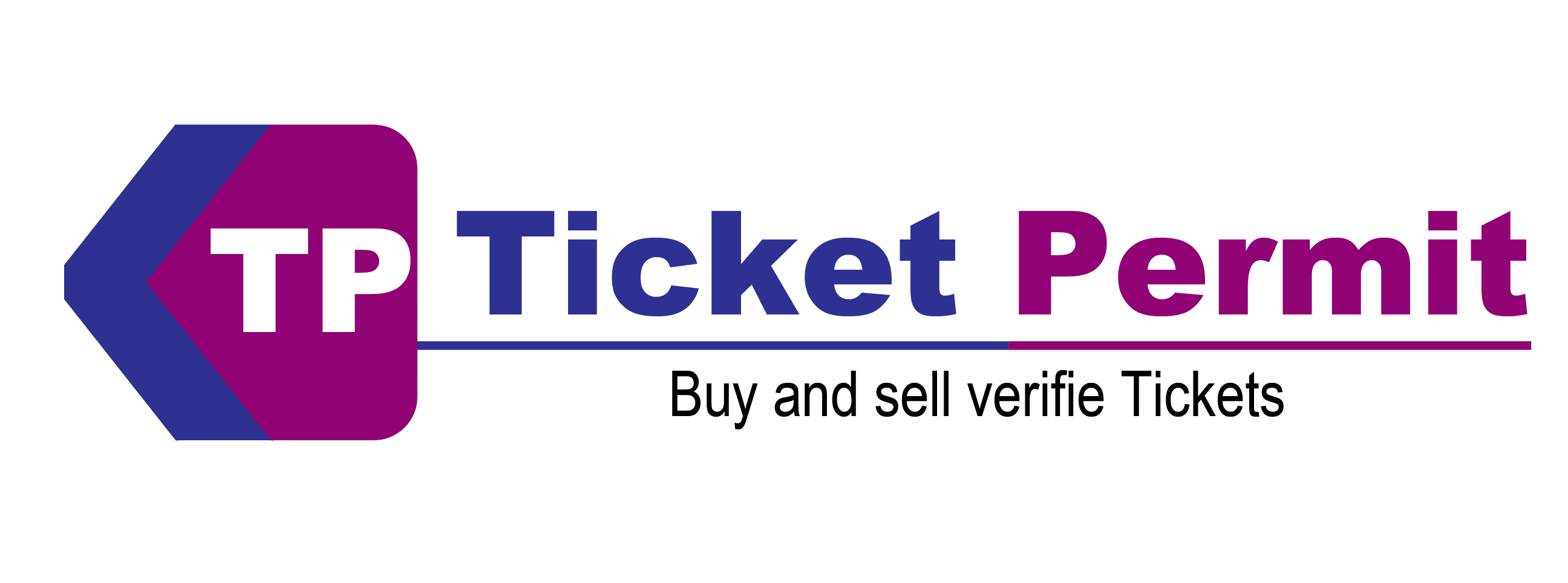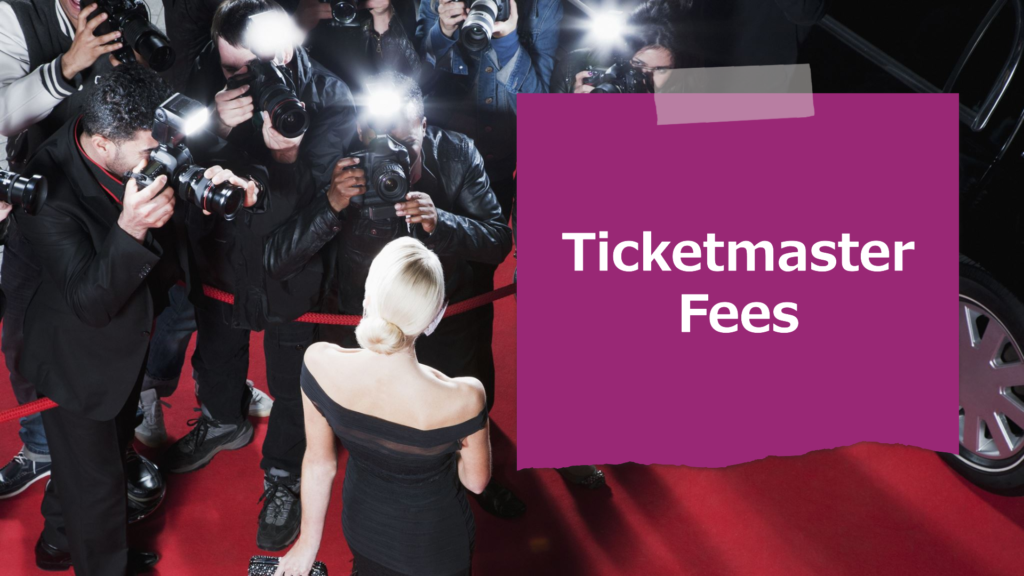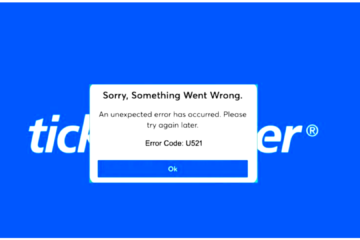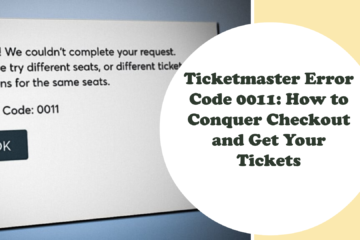Ticketmaster, the ticketing giant, connects fans with events of all kinds. But what happens when your plans change, and you’re left holding tickets you can’t use? Can you sell tickets back to Ticketmaster? The answer depends on the event and the type of ticket. This blog dives deep into the world of Ticketmaster ticket sales, exploring fees, selling options, and getting through the resale market. How Much Does Ticketmaster Charge
How Much Does Ticketmaster Charge to Sell Tickets?
Here’s the answer to your query: how much does Ticketmaster charge to sell tickets:
- Listing Fee: There’s no upfront fee to list your tickets. You only pay when your ticket sells.
- Selling Fee: This is the core fee Ticketmaster charges for facilitating the sale. It’s a percentage of the total selling price, typically ranging from 10% to 20%. The exact percentage can vary depending on the event, venue, and even the section of the seating.
- Order Processing Fee: This is a flat fee added to each order, usually around $5-$10.
- Optional Fees: Sellers can choose to add optional fees like expedited shipping or a “buy-it-now” option, which come with additional charges.
Imagine you have a ticket to a concert with a face value of $100. You decide to sell it on Ticketmaster. Here’s a possible breakdown of fees:
- Selling Fee (15%): $15
- Order Processing Fee: $7.50
- Total Fees: $22.50
Your total selling price would be $100 + $22.50 = $122.50. The buyer pays $122.50, and you receive $100 after Ticketmaster deducts the fees.
Note: These are estimated fees. Always preview the final breakdown of fees during the listing process on Ticketmaster to get the most accurate figures for your specific ticket.
Can You Sell Your Tickets Back Directly to Ticketmaster?
Unfortunately, in most cases, you cannot directly sell tickets back to Ticketmaster for a refund. Ticketmaster acts as a marketplace, and once you purchase a ticket, the sale is final (unless the event itself is canceled or postponed).
Here are some exceptions:
- Face Value Ticket Exchange: For select events, Ticketmaster offers a Face Value Ticket Exchange. This allows fans to resell tickets to other fans at the original face value. There are no fees for buyers or sellers in this program. However, not all events participate, and the availability can be limited.
- Event Cancellation or Postponement: If the event itself is canceled or postponed, you may be eligible for a full refund from Ticketmaster. The specific refund policy will vary depending on the event organizer and the reason for the cancellation.
How to Sell Your Tickets Back To Ticketmaster: Alternative Options
Since direct sales to Ticketmaster are limited, here are your best options for how to sell your tickets back to Ticketmaster:
- Ticketmaster Marketplace: This is the official resale platform within Ticketmaster. You set your own asking price, and Ticketmaster deducts the selling fees when your ticket sells. It’s a convenient option as it leverages Ticketmaster’s established audience.
- Approved Secondary Marketplaces: Ticketmaster partners with certain secondary marketplaces like StubHub or SeatGeek. These platforms have a wider reach and potentially higher selling prices, but their fees can be higher compared to the Ticketmaster marketplace.
- Social Media and Classifieds: Platforms like Facebook Marketplace or dedicated event groups can be avenues to find potential buyers. However, there’s a higher risk of scams, and the selling process might be less secure.
Tips for Successful Reselling:
- Price Strategically: Research similar ticket listings for the same event and section to set a competitive price. Start slightly higher if there’s enough time before the event, allowing room for negotiation.
- Highlight Selling Points: Include clear photos of the tickets, highlight seat details, and mention any perks associated with the tickets (e.g., early access).
- Respond Promptly: Potential buyers might have questions. Be responsive to inquiries and negotiate seriously to close the deal.
Understanding the Resale Market
The resale market is dynamic, and ticket prices can fluctuate based on factors like:
- Demand for the Event: Popular events with limited availability will have higher resale prices.
- Proximity to the Event: As the event date approaches, prices might increase due to the urgency of potential buyers.
- Artist/Team Popularity: Tickets for high-profile artists or teams tend to have a more active resale market.
- Beware of Unrealistic Offers: If someone offers a significantly higher price than the market value, it’s likely a scam.
- Never Share Personal Information: Don’t share your bank details, social security number, or passwords with potential buyers.
- Use Secure Payment Methods: Opt for secure platforms like Ticketmaster’s marketplace or established secondary markets with buyer protection policies.
- Meet in a Public Place: If you choose to meet a buyer in person, do so in a well-lit, public place with other people around.
What to Do When Reselling Isn’t Feasible?
Sometimes, reselling tickets might not be the best option. Here are some alternatives to consider:
- Transfer Tickets to a Friend or Family Member: If you know someone who might be interested in attending the event, you can transfer the tickets to them (subject to any fees or restrictions set by Ticketmaster).
- Donate Your Tickets: Several charities accept event tickets as donations. You can potentially claim a tax deduction while providing others with an opportunity to enjoy the event.
- Try to Attend the Event: If the event isn’t completely sold out and reselling seems challenging, consider attending yourself. You might have a good time despite the initial change in plans.
Make Informed Decisions Before You Sell
Before you jump into reselling your tickets, consider these factors:
- Urgency and Timeframe: Are you flexible with the selling time frame? If the event is far in advance, you can wait for a better selling price.
- Event Popularity: How popular is the event? If it’s a hot ticket, reselling might be easier at a higher price.
- Fees and Alternatives: Compare fees associated with different selling platforms and weigh them against the convenience and potential selling price.
By carefully considering these factors, you can make an informed decision about the best way to handle your unwanted tickets. How Much Does Ticketmaster Charge
The Bottom Line
Selling tickets you can’t use can be frustrating. However, by understanding Ticketmaster’s fees and exploring various resale options, you can get through the marketplace effectively. Remember to prioritize security, avoid scams, and consider alternative solutions if reselling proves challenging. With a strategic approach and awareness of the market dynamics, you can turn those unused tickets into a positive outcome. Also Know – How to Sell Ticketmaster Tickets on StubHub




